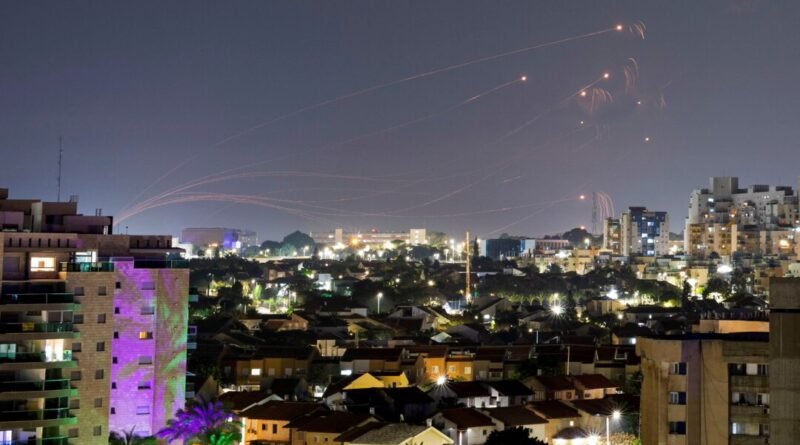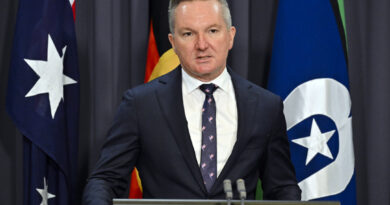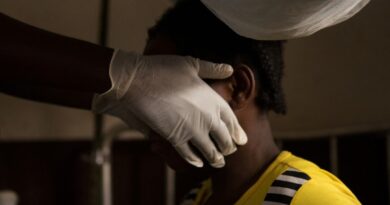Hamas Urges Australia to Oppose UN Palestine Vote, Birmingham labelled as the ‘World’s Worst Signal’
Shadow Minister Simon Birmingham urged Australia to oppose it, noting Hamas needs to release the hostages.
Shadow Foreign Minister Simon Birmingham has called on Australia to stand by its friendship with Israel and vote against a motion providing Palestine with more privileges.
However, Australia’s Foreign Minister Penny Wong is remaining tight-lipped ahead of the U.N. General Assembly vote on May 10, which will decide whether Palestine will be recognised as a U.N. state.
In its current form, the resolution does not mention Hamas. However, it does reaffirm the right of the Palestinian people to self-determination, including the “right to their independent State of Palestine.”
The resolution provides additional rights and privileges of participation of the State of Palestine at the General Assembly, including the right to be seated among Member States.
U.S. Deputy Ambassador Robert Wood made clear on May 9 that the Biden administration is opposed to the assembly resolution.
Discussing the pending U.N. motion, Mr. Birmingham said Australia should have the courage to stand by its values and friendship with Israel.
“With this looming vote expected to be taken tonight, Australian time, Australia should have the courage to stand by our principles, our values, our friendship with Israel, and our long-standing foreign policy position and vote against this motion that is expected to call for or enable some form of recognition of a Palestinian state. We should do so but it is highly unlikely,” Mr. Birmingham told Sky News.
He raised concern the motion could create incentives for Hamas and others to “see the tactics of Oct. 7 work” and continue terrorist activity.
Mr. Birmingham said a vote like this would be the “world’s worst signal” that you could send out.
During an interview on May 10, Australian Foreign Minister Penny Wong remained tight-lipped on how Australia will vote.
“We will consider the final resolution that comes before the General Assembly. Obviously, countries are still negotiating, text is changing. I got advice about new text overnight,” Ms. Wong told RN Breakfast.
“There is a lot of negotiation and discussion, and we will look at what the text says, we will look at what the actual meaning, the resolution is. We are focused on the situation on the ground.”
Mr. Birmingham said the motion might pass the U.N. meeting, but Australia should be strong enough to oppose it if it does not call for the release of hostages.
“If it’s not clear in calling for the unconditional release of hostages, the unconditional surrender of Hamas, and also clear in terms of what needs to be resolved for a two-state solution and recognition to be achieved, and that is a negotiated settlement around borders, resolution of difficult issues such as rights of return, and clearly a respect of all parties for the right of the other to exist,” he said.
“These are critical principles. Remember, Hamas remains committed to the destruction of Israel in any type of Jewish state, and you need to see pressure put on Hamas for those hostages to be released in the short-term, and for proper negotiations to actually be made possible over the medium to longer term.”
In April, the United States blocked a request from Palestine to become a full member of the United Nations.
U.S. Deputy Ambassador Robert Wood indicated the Biden administration is against the assembly resolution.
On Oct. 7, Hamas launched an attack on Israel, killing 1,200 people and capturing more than 250 hostages. Since then, more than 34,000 people have died in Gaza.
Wong Won’t Be Drawn In on Australia’s Position
Ms. Wong said Australia wants a “humanitarian ceasefire,” “release of hostages,” increased humanitarian aid, and lasting peace in the region.
The Foreign Minister said Australia would consider whether the resolution contributes toward lasting peace and whether it makes progress towards a two-state solution.
“Let’s remember, we do need, as an international community, after months of what we have seen in Gaza, after the horrific attacks by Hamas, a terrorist group, which has as its objective the destruction of the State of Israel, we do need to think about what is a long‑term process which delivers security for Israel and for the Palestinian people,” Ms. Wong added.
She said she understands people have strong views on both sides of this debate and any actions or words by the government are construed as either being at one end or the other of the debate.
“Unfortunately, in this country, we’ve seen too much of this discussion, which is being looked at by those who basically say, ‘you’re either with us or against us,’ and everything is black and white and simple,” Ms. Wong said.
“Regrettably, that is not what is happening in the Middle East, and regrettably, that is not how, you know, we should be looking at this. Well, not regrettably, I’m saying regrettably that this discussion prevents people from seeing, you know, what we are actually trying to do and what countries are genuinely trying to do.”





